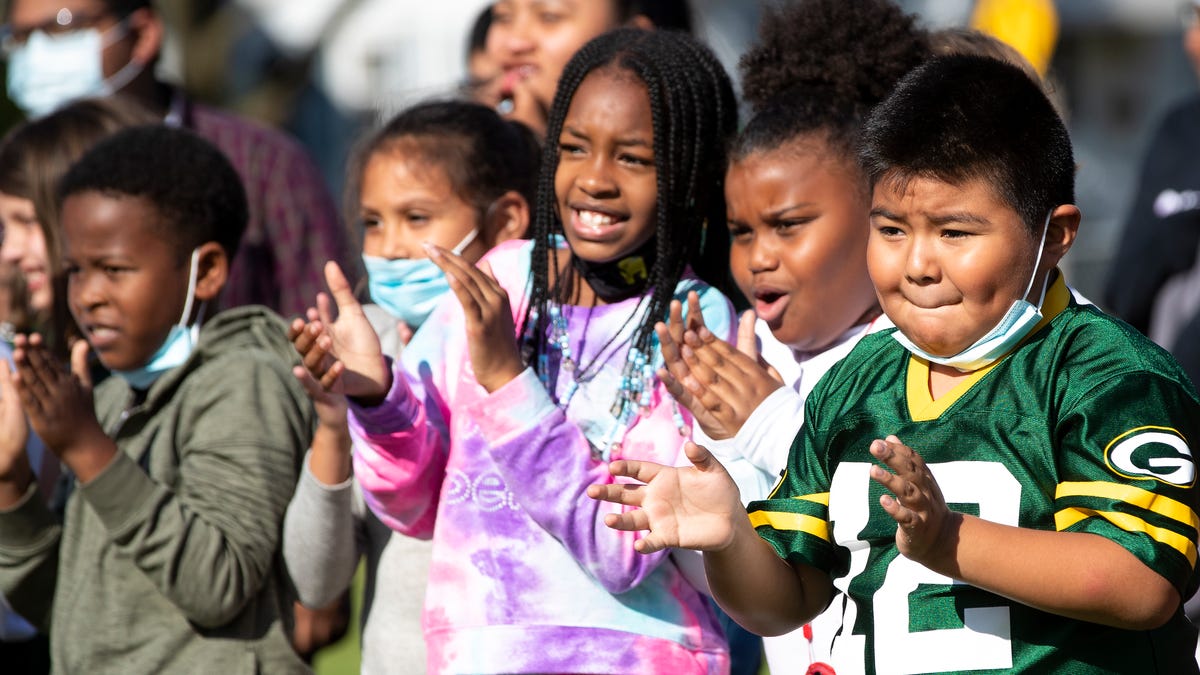[ad_1]
GREEN BAY – Brown County has awarded the Boys & Girls Club of Greater Green Bay a $100,000 grant to create a new mental health counselor position, which will give young people and families additional options for therapy.
Unlike many other avenues for therapy, this one’s free of charge.
This isn’t the first time the Green Bay club has prioritized mental health in its community mission. It was among the first Boys & Girls Clubs in the United States to embed a social emotional learning department in 2017, Brooke Unrath, the director of the department, said.
“(Mental health) accessibility is always an issue, and we’re trying to help by having a resource in the clubhouse for kids who are already there,” Unrath said. “That way, parents don’t have to take off work to get care for their kids.”
Being a young person is especially difficult these days, and it can be hard to find support. Some families don’t have health insurance, or they don’t have insurance that adequately covers therapy. Other families, pressed against job commitments, don’t have the freedom of time to get their children the care they need. And others languish on drawn-out waiting lists to talk to a professional, only to eventually learn that the therapist may not be the right match to meet their child’s needs.
But new money from the federal pandemic relief fund is coming into local organizations, including the Boys & Girls Club, to break down some of those barriers.
More: What’s missing from your child’s counseling sessions? You, according to mental health experts.
Brown County awarded the money to the club from its American Rescue Plan Act funding, but the need for a mental health counselor came long before the grant, Unrath said. Before the pandemic, the Greater Green Bay Club had been partnering with the Foundations organization to get its young members the care they needed.
The pandemic forced the club to shut down for a time and when it reopened, Unrath said, young people had undergone a troubling transformation. The Boys & Girls Club needed more than a partnership. It needed more core staff to support the new and novel needs of young people.
It was already common for Unrath to work with children who had incarcerated parents and kids who were transient or hopping from one foster family to another — but those issues and ensuing mental health concerns became amplified during the pandemic.
“I’m seeing higher suicidal ideations now in kiddos at a much higher rate than I ever did before,” Unrath said.
As more young people die by suicide in Wisconsin, barriers-free solutions are needed
If other Boys & Girls Clubs in the region are any indication, embedding a mental health counselor in the Greater Green Bay Club will allow children, young people and families to seek “solutions-based” care while on waiting lists for more long-term care, said Lisa Kogan-Praska, chief executive director.
The people most often failing to receive care, whether it be short- or long-term, are young adults between 18 and 25, as well as children of all ages, according to the 2019 Wisconsin Behavioral Health Systems Gap report. Researchers speculate some of the causes are the result of a shortage in counseling, stigma and prejudice, cost barriers, a lack of support options and insurance issues.
Even before the pandemic, a crisis was mounting. The Wisconsin Department of Health Services’ statistics revealed that in 2018, the last period of comprehensive reporting, 54 people younger than 20 died by suicide.
Ten years prior in 2008, for context, those same age groups in Wisconsin had 31 deaths by suicide. That number has steadily been increasing.
It can’t be said enough, Unrath and Kogan-Praska agreed, that the pandemic made a bad thing much, much worse.
Little things are producing big emotions in young people, Kogan-Praska said. Two years of remote learning have suddenly thrust people from socializing in real time as a high school freshman to now being a senior with the social know-how of a sophomore. Along the way, they’ve missed events like junior proms, homecoming and all the vicissitudes of classroom antics.
“They’ve missed key and critical parts to their own development and socialization,” Kogan-Praska said. “They need help understanding and processing all that grief.”
The mental health counselor will work at both the east and west side locations of the Green Bay club in an after-school capacity, Unrath said, the same as the rest of the social emotional learning team. She anticipates the counselor will have a caseload of 10 to 15 individuals on top of group work with kids.
Kogan-Praska said the free service isn’t a silver bullet, but it can start conversations that lead to more long-term care. Data from the neighboring Boys & Girls Clubs of the Fox Valley suggest that, over time, its approach can acquaint children in need — and some parents — with professional, experienced counselors.
The Fox Valley organization transitioned from a counseling center to a chartered club in 1998. Today it has two counselors in addition to case managers and specialists who work with runaways or transient youths.
Carlyn Andrew, senior director of counseling and training at the Boys & Girls Clubs of the Fox Valley, said that, on average, children and young adults who work with counselors on site do so for six to eight months, and undergo an average of 10 sessions.
Youth development, Andrew said, depends on a number of factors: academic success, good character and citizenship, and a healthy lifestyle. A programmatic approach to enriching all three of these factors is the name of the game for the Boys & Girls Clubs, Andrew said.
Research today demonstrates that social emotional development has as much to do with healthy outcomes as nutrition and risk-avoidance behaviors, Andrew said.
“The more skilled up young people are, the more prepared they are to weather the stressors and adversities that will come to them,” Andrew said.
Outcomes from on-site mental health counselors at the Boys & Girls Clubs of the Fox Valley revealed a reduction of symptoms in 95% of clients undergoing counseling services.
Kogan-Praska said grant money going into mental health programs at her club in Green Bay is “scratching the surface” in the conversations around permanent mental health models ahead.
“I’d love to see us be able to scale this in a sustainable way if we could,” Kogan-Praska said. “Because I think the needs are certainly there at a much greater level than just one role can support.”
Natalie Eilbert covers mental health issues for USA TODAY NETWORK-CENTRAL WISCONSIN. She welcomes story tips and feedback. You can reach her at neilbert@gannett.com or view her Twitter profile at @natalie_eilbert. If you or someone you know is dealing with suicidal thoughts, call the National Suicide Prevention Lifeline at 988 or text “Hopeline” to the National Crisis Text Line at 741-741.
[ad_2]
Source link


